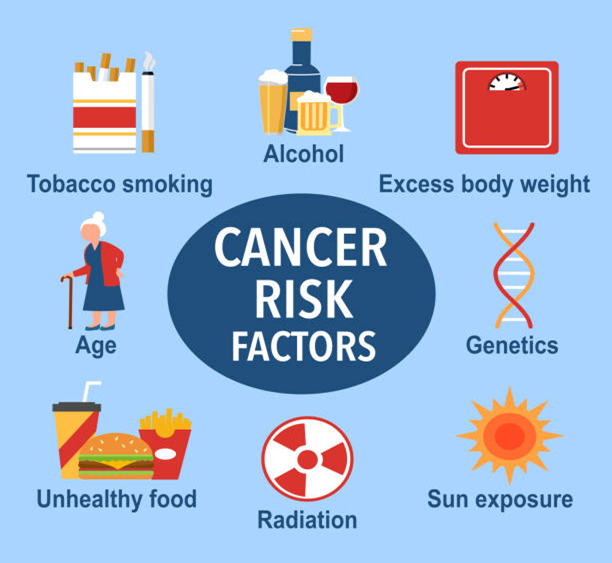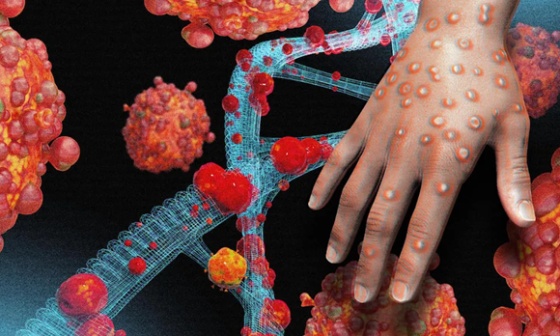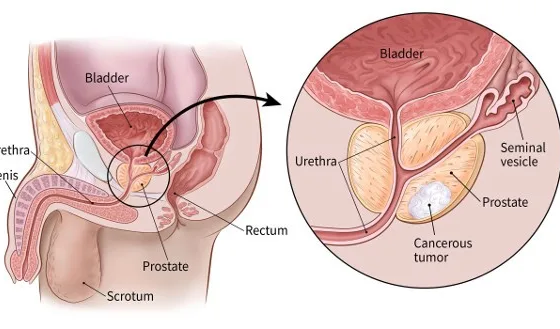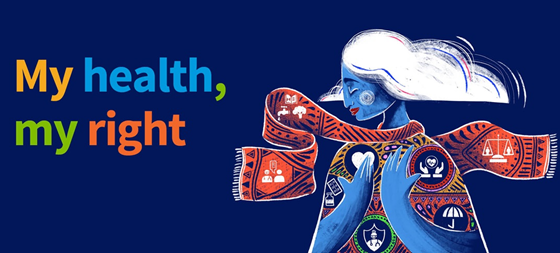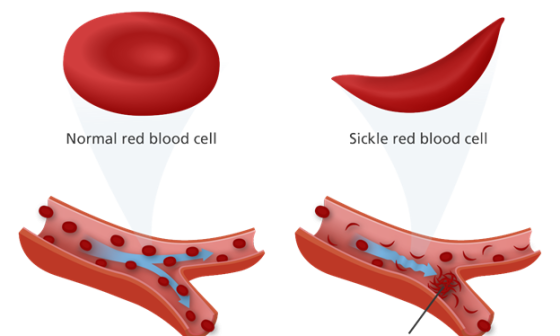Introduction
Cancer is a complex disease with many causes, not limited to Nigeria or Africa. Some risk factors are beyond our control, but others can be reduced via lifestyle modifications and preventive measures.
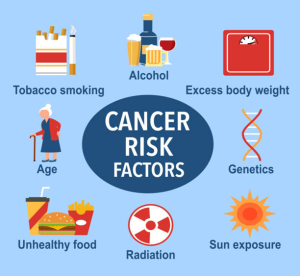
However, this blog post will focus on ten likely cancer risk factors. Remember that this list is not exhaustive, and having one or more of these variables does not mean you will acquire cancer. However, it emphasizes the necessity of being vigilant and seeking medical attention if you have any concerns.
Risk Factors for Cancer
- Tobacco use:
Chronic use of tobacco increases the risk of developing malignancies such as lung, mouth, throat, bladder, and pancreatic cancer.
- Family History:
Having a close family with a specific cancer raises your risk. Note that, having a family history of cancer does not guarantee that you will develop it.
- Excessive Sun Exposure:
Overexposure to ultraviolet (UV) light from the sun is a major risk factor for skin cancer.
- Unhealthy Diet and Obesity:
Eating a diet high in processed foods, red meat, and unhealthy fats and low in fruits, vegetables, and whole grains can increase the risk of cancer. Obesity has also been related to an increased risk of some malignancies like colon cancer.
- Excessive alcohol use and intake:
Alcoholism increases the risk of malignancies in the mouth, throat, oesophagus, liver, and breast.
- Existing medical conditions:
Certain medical disorders, such as chronic inflammation, hormone imbalances, and compromised immune systems (HIV/AIDS), can increase the risk of cancer.
- Toxic Environmental Exposures:
Certain chemicals (benzene, asbestos), pollutants (arsenic), and radiation in the environment can raise cancer risk.
- HPV Infection:
Human Papillomavirus (HPV) has several strains that can be sexually transmitted causing infection as well as and can cause cervical cancer in women, and various malignancies in males.
- Age:
As age increases there is a likelihood of getting some malignancies as cellular alterations build over time with aging.
- Thick breast tissue:
Women with thick breast tissue are more likely to get breast cancer. Regular mammograms are critical for early detection in these instances, annual mammograms should be done in women 40 years and above.
Take Charge of Your Health: Tips on Cancer Prevention
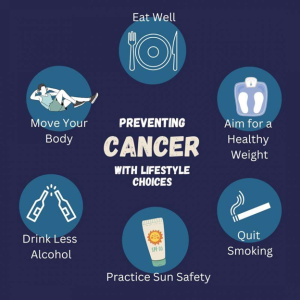
Source:Waterloo Wellington Regional Cancer Program
- Maintain a healthy lifestyle:
Maintain a healthy weight by eating a well-balanced diet and exercising regularly.
- Limit Alcohol Consumption:
Drink alcohol in moderation or avoid it entirely.
- Cover up:
Seek shade, wear protective clothing, and apply sunscreen with an SPF of 30 or higher.
- Don’t Smoke:
Quitting smoking is one of the most beneficial things you can do for your general health. It dramatically lowers your risk of developing cancer and other illnesses like hypertension and diabetes as an African or Nigerian.
- Get Vaccinated:
The HPV vaccine protects against cervical cancer-causing strains of HPV.
- Schedule regular checkups and screenings: Subscribe to an affordable health plan for you and your family from WellaHealth, where you can consult your doctor about the recommended cancer screenings based on your age, family history, and risk factors.
Conclusion
At Wellahealth, we understand that cancer can be a frightening topic. We are committed to providing reliable information and resources to empower you to take charge of your health. This is why we provide knowledge through telemedicine consultations when you subscribe to one of our health plans for as little as N800 per month. Send us a WhatsApp message today.
Visit our website and blog posts for more details on:
- Specific cancers and their risk factors
- Early detection methods and recommended screenings
- Healthy lifestyle habits for cancer prevention.
Dr. Ifeoma Uduh
